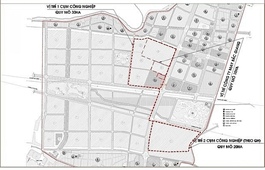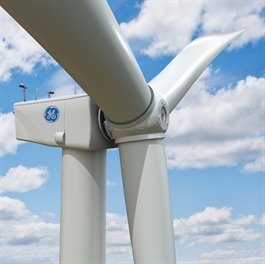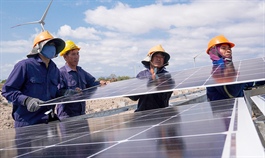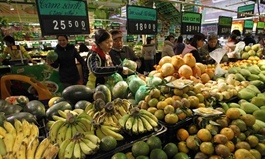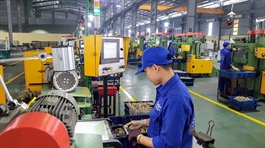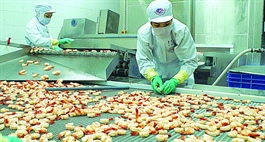Farmers urged to use high-tech practices to enter global value chains
Farmers urged to use high-tech practices to enter global value chains
Farming households in the Cuu Long (Mekong) Delta need to apply high-tech practices to develop value-added agricultural products that can enter global value chains, Le Minh Hoan, deputy minister of Agriculture and Rural Development, has said.

Hoan said it was vital to offer incentives and loans to farmers who use sustainable and climate-friendly production processes.
Millions of small-scale farming households, which are the most critically affected by climate change, need access to innovative technologies and practices as well as market information.
The COVID-19 pandemic has disrupted global supply chains, posing risks to farmers and exporters of farm produce. The most affected products have been fresh fruits, vegetables and aquatic products, according to the Viet Nam Academy of Agricultural Sciences.
To cope with the outbreak, major firms including the Loc Troi Group, Vingroup, PAN Group and Hoang Anh Gia Lai, have invested in high-tech applications.
Firms are also working with cooperatives and farming households to create “clean and safe food sources”. They are training farmers in brand management and offering technical and seed support to improve quality control during processing and before harvesting.
Challenges
In the future, the Mekong Delta will face a growing population and rising urbanisation. Pollution, landslides, coastal erosion and loss of natural forest land are all expected to increase.
Because arable land and harvests will shrink worldwide, productivity and a sufficient supply of quality food must increase, while natural resources remain protected.
Since more than 70 per cent of Viet Nam’s agricultural products are from 22 million smallholder farmers, local agri-businesses should not depend solely on major corporations to promote innovative solutions, experts have said.
Other challenges include farmers’ limited capital. Switching to high-tech agriculture requires a considerable up-front investment.
Another major issue is market and consumer confidence. Building brands and winning customer confidence are essential for Vietnamese brands so they can take advantage of major export markets like the EU under the new EU-Viet Nam Free Trade Agreement (EVFTA).
According to the White Book on Vietnamese Businesses 2020, the Mekong Delta currently has more than 55,000 enterprises, accounting for only 7.26 per cent of the country’s total number.
Most of the businesses in the Mekong Delta region are small and medium-sized, and most lack long-term business strategies in technology investment, human resources training, and branding.
Solutions
Amid deep global integration, Vietnamese products face strong competition from foreign-made goods.
Solutions must be identified, especially for smallholder farmers, to apply technology so they can enter mass markets. But it will take time to change farmers’ methods that have existed for hundreds of years, experts said.
Nguyen Minh Hai, deputy chairman of the European Chamber of Commerce in Viet Nam (EuroCham), said that exporters should continue to take advantage of the EVFTA to boost agricultural products such as rice, seafood and fruit.
As many as 39 Vietnamese Geographical Indications (GIs) exist in the EU, providing an adequate framework for further promotion of imports of quality products, he said.
The EU maintains some of the highest sanitary, phytosanitary, origin tracing and sustainable standards in the world. Hai said that exporters should raise local standards and develop new value-added products to compete internationally, particularly in the EU with its population of 450 million.
The elimination of tariffs under the EVFTA is expected to benefit farm produce from the Mekong Delta, but technical barriers to trade will be raised, imposing challenges for products and services.
The Mekong Delta region contributes 54 per cent of rice output, 70 per cent of aquaculture output and 60 per cent of fruit output to the country’s total output.



